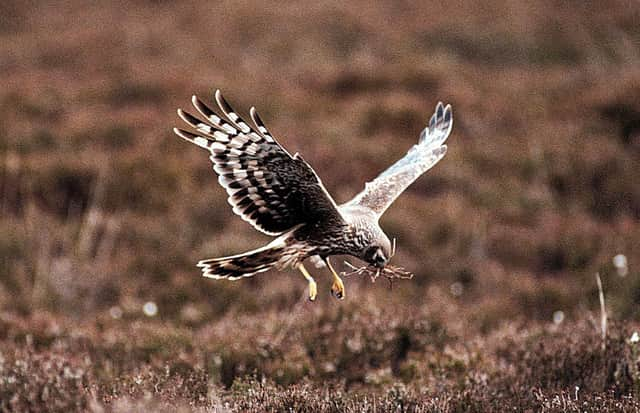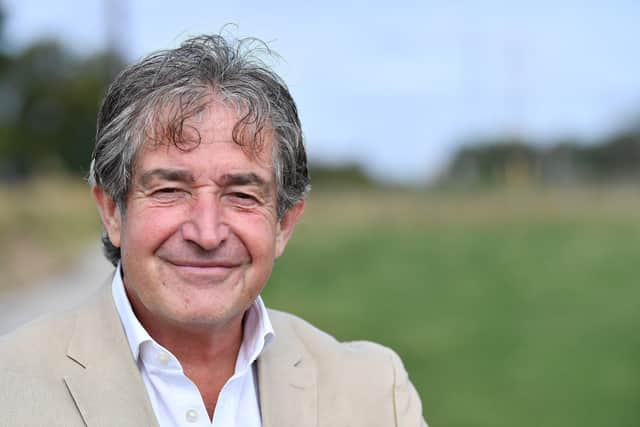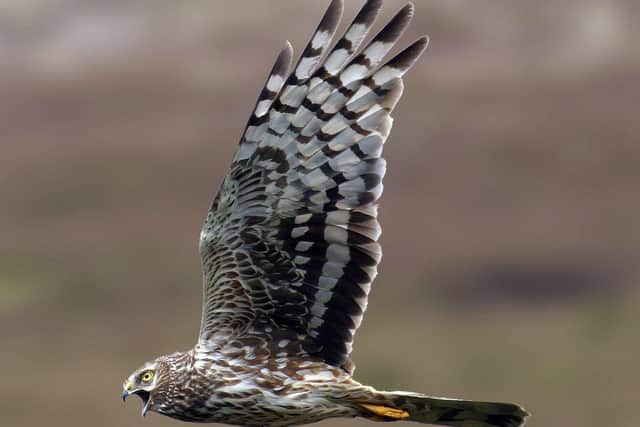How UK can lead the charge in reversing nature’s decline - Tony Juniper


We have known about this rapid decline for a long time, but the latest data reveals that it is accelerating, while global progress over the last decade has been poor; the world has not met any of the international biodiversity targets agreed in 2010.
The UK, as the birthplace of the industrial and agricultural revolutions, has been particularly hard hit and today is one of the most nature-depleted nations in the world.
Advertisement
Hide AdAdvertisement
Hide AdThis is bad news for us all, because these losses represent a decline in the resilience of the natural systems upon which we ultimately depend for our health, wealth and security.


Although the evidence for nature’s decline is deeply worrying, there is also increasing proof to show that it is not inevitable and that public reverence for our environment is ever increasing.
In Yorkshire, we have seen an increase in appreciation of the county’s vast and magnificent national parks. We recorded the best year for hen harrier breeding in England since 2002 with 60 chicks fledged from 19 nests across areas of northern England, including the Yorkshire Dales, although the birds remain critically endangered in England and still require careful conservation,
Looking at a global scale, a recent study concluded that conservation measures have prevented up to 32 bird and 16 mammal extinctions since 1993 – extinction rates are still frightening high, however they would have been three to four times higher without efforts to avert species losses.
Advertisement
Hide AdAdvertisement
Hide AdMeanwhile, experts this month concluded that it is possible to ‘bend the curve of biodiversity loss’ while still producing enough food for our growing global human population, but only through ‘unprecedented ambition and co-ordination’ encompassing nature management and restoration, a shift to sustainable agriculture and trade, and reducing food waste and meat consumption.


The task ahead is hugely challenging. Key to meeting this challenge in England will be addressing habitat loss by establishing a national ‘Nature Recovery Network’.
This includes putting measures in place to get our already protected nature-rich areas (our Sites of Special Scientific Interest) into the best possible condition so that species are thriving in these core sites and dispersing out into newly created corridors and habitats.
These protected sites are the engines that must power the network, and we need to supercharge them. We can do this by creating more places where people can experience abundance of nature and wildness, which tackle biodiversity loss and climate change, while delivering other societal benefits, such as reducing flood risk and catching carbon.
Advertisement
Hide AdAdvertisement
Hide AdThe Government’s commitment this week to increase the size of our protected areas by an extra 400,000 hectares, the size of the Lake District and South Downs National Parks combined, could be a hugely important step.
The coronavirus pandemic has thrown sharp relief on our relationship with the natural world, and led to an increased appreciation of the value of contact with nature. Crucially, we must make space for nature close to people.
We need to respond to the need for better access to nature, through creating the kind of ‘Wild-Belt’ around our towns and cities that has been proposed by the Wildlife Trusts, to level up access to nature so that more people from all backgrounds can enjoy the health and well-being benefits that come with that, and in turn want to protect it.
The UK has a fantastic opportunity to demonstrate bold global leadership through its presidency of COP26 and the G7 in 2021 backed up by action at home.
Advertisement
Hide AdAdvertisement
Hide AdWe need to carry the momentum forwards from this week’s UN General Assembly and the Leaders’ Pledge for Nature into COP26 and the Convention on Biological Diversity COP.
If biodiversity decline and climate-changing emissions can be slowed and reversed in the country that led the industrial and farming revolutions, it might yet be possible to set in motion an ecological revolution.
Let’s see, perhaps 2020 will be momentous for the foundations for decisive action on biodiversity and climate change in 2021 and beyond.
Tony Juniper is chair of Natural England.
Support The Yorkshire Post and become a subscriber today.
Your subscription will help us to continue to bring quality news to the people of Yorkshire. In return, you’ll see fewer ads on site, get free access to our app and receive exclusive members-only offers.
Advertisement
Hide AdAdvertisement
Hide AdSo, please - if you can - pay for our work. Just £5 per month is the starting point. If you think that which we are trying to achieve is worth more, you can pay us what you think we are worth. By doing so, you will be investing in something that is becoming increasingly rare. Independent journalism that cares less about right and left and more about right and wrong. Journalism you can trust.
Thank you
James Mitchinson
Comment Guidelines
National World encourages reader discussion on our stories. User feedback, insights and back-and-forth exchanges add a rich layer of context to reporting. Please review our Community Guidelines before commenting.